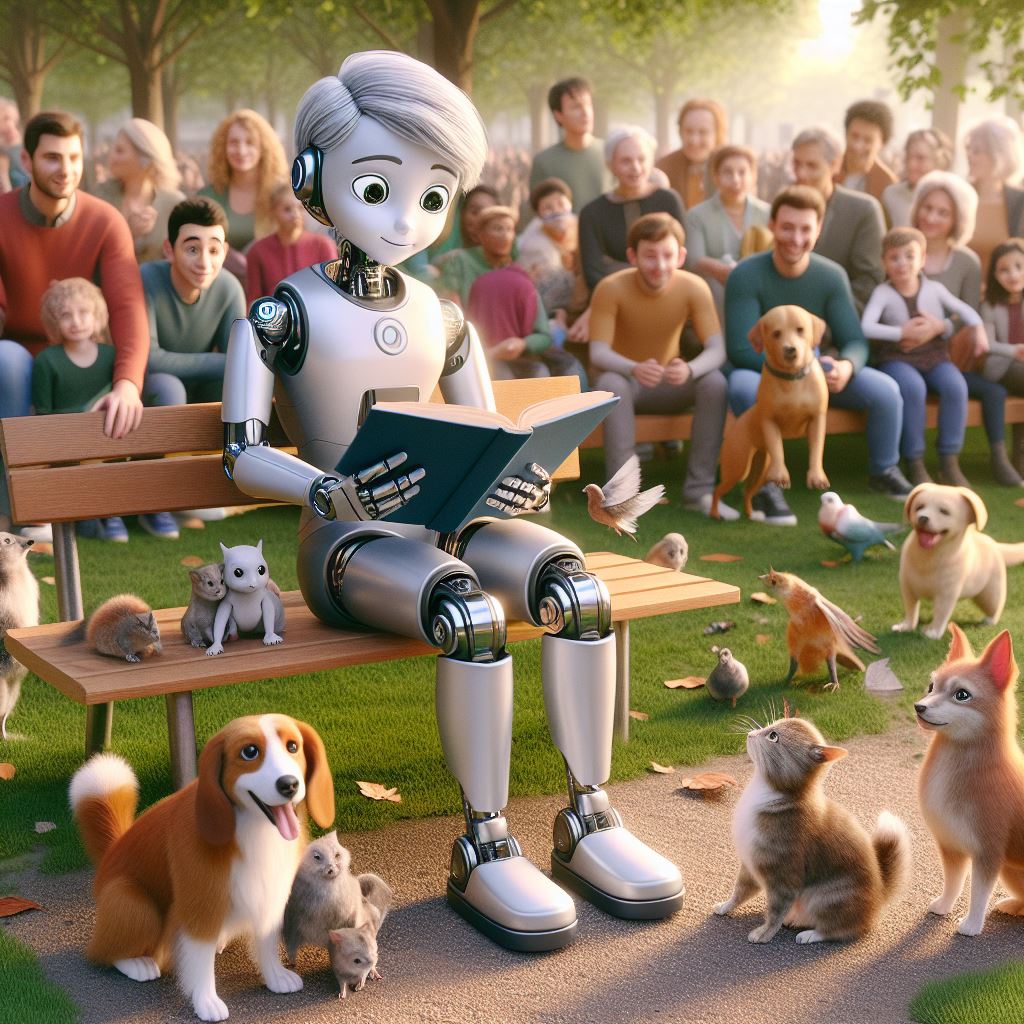THE humanization of artificial intelligence is a topic that has gained more and more prominence in the technological world.
Artificial intelligence (AI) has been a driving force for many technological innovations. However, the humanization of artificial intelligence is an aspect that needs to be considered as we move forward.
The idea behind this is to make AI more understandable and accessible to humans.
This involves creating AI systems that not only perform complex tasks, but also communicate and interact with humans in a natural and intuitive way.
This approach can be seen in several applications.
For example, virtual assistants like Siri and Alexa are designed to understand and respond to human voice commands.
They are also able to learn from past interactions to improve their future responses.
Another example can be seen in chatbots. These computer programs are designed to simulate human conversations and are used in a variety of applications, from customer service to therapy.
This approach also has significant implications for the field of robotics.
Robots that can understand and respond to human social cues may be more effective in environments where human interaction is necessary.
AI has revolutionized the world of technology.
However, one aspect that has stood out is the humanization of artificial intelligence.
But what does this actually mean and why is it important? Let’s explore this in detail in the following topics.
Table of contents

Definition of humanization of artificial intelligence:
Humanizing AI refers to the process of making AI more understandable and accessible to humans.
This involves creating AI systems that can communicate and interact with humans in a natural and intuitive way.
The importance of humanizing artificial intelligence in today's technology:
Humanizing AI is crucial in today’s technology because it allows humans to interact with AI more effectively. This can lead to greater adoption of AI technologies and significant advancements in various fields.
Examples of humanizing artificial intelligence in use today:
Examples of humanizing AI can be seen in virtual assistants like Siri and Alexa, which are designed to understand and respond to human voice commands. Another example can be seen in chatbots, which are designed to simulate human conversations.
The role of humanizing artificial intelligence in robotics:
Humanizing AI has a significant role to play in robotics. Robots that can understand and respond to human social cues may be more effective in environments where human interaction is required.
Ethical issues raised by the humanization of artificial intelligence:
Humanizing AI also raises several ethical questions. For example, to what extent should we allow AI to mimic human behavior? And what are the implications of creating machines that can potentially pass the Turing Test?
The future of humanizing artificial intelligence:
Humanized AI is a rapidly growing field of research. As technology continues to advance, we’re likely to see even more applications of humanized AI in the future.
However, the humanization of artificial intelligence It also raises several ethical questions. For example, to what extent should we allow AI to mimic human behavior? And what are the implications of creating machines that can potentially pass the Turing Test?
Despite these concerns, the humanization of artificial intelligence is a rapidly growing field of research. As technology continues to advance, we are likely to see even more applications of human-like AI in the future.
Conclusion:
THE humanization of artificial intelligence is a rapidly growing field that has the potential to transform the way we interact with technology.
By making AI more understandable and accessible, we can ensure that this powerful technology is used effectively and ethically.
As we continue to explore and develop this area, it is essential that we consider the ethical and social implications to ensure a future where AI can benefit everyone.
Fonte https://optclean.com.br/o-que-e-inteligencia-artificial-humanizada/:
